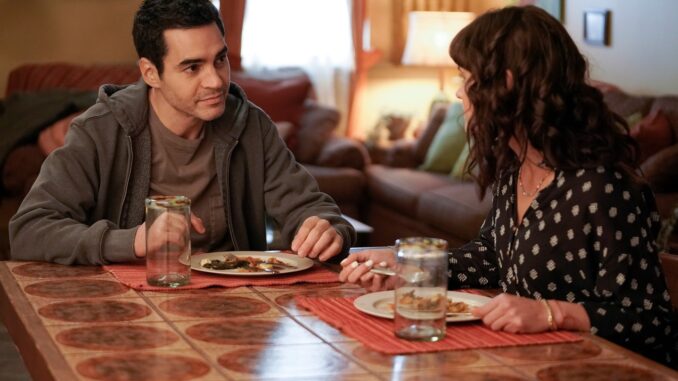
It’s always a gamble when a novel is adapted for the small or big screen. Readers form impressions of characters in their minds—how they look, sound, walk, interact, and react in their fictional space—and inevitably, when those characters are brought to life, there are always some naysayers who protest that what they see on TV or in the movies doesn’t match what’s in their minds. This can be difficult for die-hard fans of the print medium. In addition to the characters, readers demand that the settings, plots, and themes that keep them turning pages be faithfully translated to the screen, or they’ll lose interest entirely.
So imagine the daunting task of adapting Karin Slaughter’s 11-book series starring Atlanta Special Agent Will Trent into a weekly television series. For fans who have been glued to the anthology since the first Will Trent novel hit the shelves in 2006, expectations are high. The good news is that the TV version of Will Trent will likely satisfy fans of the novels. However, there are still some things that need to be fixed to make it a truly great show.
‘Will Trent’ captures the essence of its protagonists In the first novel in the Will Trent series, Triptych, author Slaughter describes the hard-boiled detective as “6 feet 3-4 inches tall, broad-shouldered, lean and strong, with short blond/blonde hair and large hands.” The TV version of Will Trent appears as Ramón Rodríguez, who is 5 feet 11 inches tall, handsome, clean-cut, slim, with a muscular body and wavy black hair. Not exactly the cardboard cutout of the protagonist. While Trent may not physically resemble the character in the book, it’s clear that Rodríguez embodies Trent’s unique, unbalanced presence, and he becomes believable as the eccentric detective. Viewers first see Trent at an animal shelter, holding a tiny, shivering Chihuahua he finds, desperately trying to get the women behind the desk to take the cute dog away from him. Like Will Trent in “Triptych,” Rodríguez portrays a character who is awkward, socially awkward, and certainly not approachable. If Rodríguez isn’t the physical embodiment of Will Trent in the novel, he is the embodiment of the character. And readers of Slaughter certainly understand why Trent eventually takes Betty, the Chihuahua, home with him. It’s not because Trent is altruistic; it’s because he knows what it’s like to be abandoned.
Kudos to Slaughter and the episode’s co-writers Liz Heldens and Daniel T. Thomsen for deftly establishing some essential insight into why Trent is so excited within the first few minutes of the show. However, one major distraction in Rodríguez’s portrayal is Trent’s accent. At times, Rodríguez speaks with a deep Southern drawl that’s nearly unintelligible. At other times, he sounds like he’s a transfer from the Brooklyn Police Department. And in some scenes, he doesn’t speak with an accent at all, which becomes a major distraction. Rodríguez needs to nail the Georgian accent from Slaughter’s books and stick with it.
Another major change the Will Trent series makes is the casting of Iantha Richardson (most recently This is Us) as Faith Mitchell, Trent’s partner. In the series, Mitchell is a white woman. Still, casting a black actress as Trent’s reluctant partner is a great idea, and really adds depth to the partnership between Mitchell and Trent. Mitchell is a no-nonsense woman who doesn’t suffer fools, and Richardson’s portrayal of the smart but battle-scarred Atlanta cop makes her an ideal foil for Trent. As Trent’s childhood friend and sometime romantic partner Angie Polaski, Erika Christensen is the perfect fit, deftly playing a woman on the brink of sobriety, defeated, but not yet broken. She and Trent engage in a relationship that is potentially toxic and codependent, but there’s also a warmth and mutual support in their pairing that’s bolstered by their shared past. While the cast expertly brings Slaughter’s characters to life, Will Trent tends to fall into clichéd crime drama tropes, relying heavily on the novel’s uncharacteristic tabloid-style dialogue. With lines like, “I told him I’d give him my best… which is you,” “How’s it going, you son of a bitch,” and “You should be out there turning over every stone,” the show risks veering into Law and Order territory when it has everything